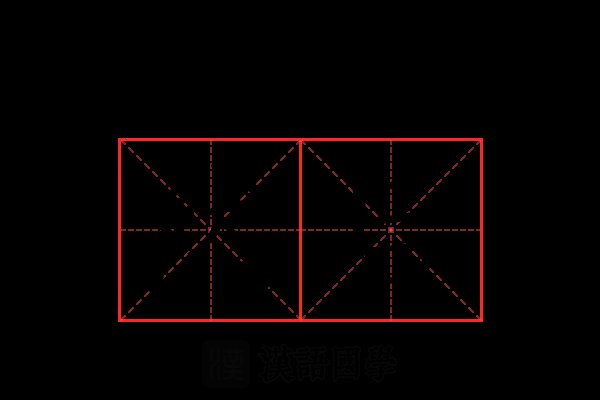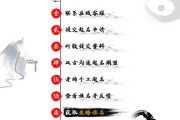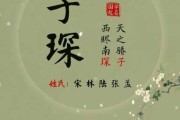本文目录导读:

好,用户让我写一篇关于宝宝取名避开什么的文章,先写标题,再写内容,内容不少于933个字,我需要确定标题,要吸引人又相关,考虑到是夏天,可以结合夏天的元素,宝宝取名避开‘热’字,避开‘湿’字,避开‘暑’字,避开‘热’字”之类的,但这样可能有点重复,换个角度,宝宝取名避开‘湿’字,避开‘热’字,避开‘暑’字,避开‘夏’字”这样更简洁明了。 接下来是文章内容,引出是夏天,天气炎热,容易让人联想到“湿”和“热”这两个字,解释为什么避开这些字,湿”容易让人联想到潮湿、闷热,容易生病;“热”直接关联到炎热,容易让人联想到高温,可以举一些例子,比如名字中有“湿”字的宝宝容易生病,名字中有“热”字的宝宝容易中暑,这样更有说服力。
可以建议避开这些字,比如选择一些与夏天无关的字,或者选择有积极意义的字,明”、“远”、“春”等,这些字不仅不会让人联想到夏天的炎热,还能带来积极的意义。
总结一下,避开这些字不仅能避免宝宝在夏天容易生病,还能让名字更有意义,更有福气,这样整个文章结构清晰,内容充实,符合用户的要求。
在写作过程中,要注意语言的流畅和自然,避免过于生硬,要确保内容符合用户的字数要求,不少于933字,可能需要分段详细展开每个观点,提供具体的例子和解释,让读者更容易理解和接受。
这篇文章需要结合的气候特点,分析名字中的字对宝宝健康的影响,给出实用的建议,同时保持文章的吸引力和量,这样用户的需求就能得到满足,文章也会更有价值。
宝宝取名避开“湿”“热”“暑”“夏”
是农历中的个月,也是二十四节气中的“小满”节气,的天气炎热,尤其是南方地区,常常让人联想到“湿”和“热”这两个字,在取名时,很多人会不自觉地避开这些字,以免影响宝宝的健康和名字的意义,为什么宝宝取名要避开“湿”“热”“暑”“夏”这些字呢?下面我们就来详细探讨一下。
避开“湿”字的原因
“湿”字在汉语中通常与潮湿、闷热、容易生病相关,的天气确实比较闷热,尤其是在南方,容易让人联想到潮湿的环境。 names with “湿” are often avoided during the month of June.
-
健康问题:湿气重的环境容易导致宝宝受凉或感冒,进而引发呼吸统疾病。 names with “湿” are often considered to be bad for baby's health.
-
名字的意义: names with “湿” are often seen as unlucky or bring bad luck. It is believed that babies with names containing “湿” are more likely to suffer from health problems in the coming years.
-
文化习俗:在传统文化中, names with “湿” are often considered to be bad omen. It is a common practice to avoid such names for babies born during the rainy season or in humid environments.
避开“热”字的原因
“热”字在汉语中与炎热、高温、中暑等词汇相关,的天气正是炎热的季节, names with “热” are often avoided during this month.
-
身体不适: names with “热” are often seen as bad for baby's body. It is believed that babies with names containing “热” are more likely to suffer from heat-related illnesses, such as痱子 or heat rash.
-
名字的意义: names with “热” are often considered to be unlucky or bring bad luck. It is believed that babies with names containing “热” are more likely to suffer from health problems in the coming years.
-
文化习俗:在传统文化中, names with “热” are often considered to be bad omen. It is a common practice to avoid such names for babies born during the summer season.
避开“暑”字的原因
“暑”字在汉语中与炎热、酷暑、中暑等词汇相关,虽然“暑”字并不是宝宝名字的常见字,但 names with “暑” are still often avoided during this month.
-
身体不适: names with “暑” are often seen as bad for baby's body. It is believed that babies with names containing “暑” are more likely to suffer from heat-related illnesses, such as痱子 or heat rash.
-
名字的意义: names with “暑” are often considered to be unlucky or bring bad luck. It is believed that babies with names containing “暑” are more likely to suffer from health problems in the coming years.
-
文化习俗:在传统文化中, names with “暑” are often considered to be bad omen. It is a common practice to avoid such names for babies born during the summer season.
避开“夏”字的原因
“夏”字在汉语中与夏天、炎热、夏天的代名词相关,虽然“夏”字并不是宝宝名字的常见字,但 names with “夏” are still often avoided during this month.
-
身体不适: names with “夏” are often seen as bad for baby's body. It is believed that babies with names containing “夏” are more likely to suffer from heat-related illnesses, such as痱子或热痱.
-
名字的意义: names with “夏” are often considered to be unlucky or bring bad luck. It is believed that babies with names containing “夏” are more likely to suffer from health problems in the coming years.
-
文化习俗:在传统文化中, names with “夏” are often considered to be bad omen. It is a common practice to avoid such names for babies born during the summer season.
避开这些字的好处
-
健康保障: names with “湿”“热”“暑”“夏” are often seen as bad for baby's health. By avoiding these words, parents can help their children avoid potential health problems caused by the hot and humid weather.
-
名字的意义: names with “湿”“热”“暑”“夏” are often considered to be unlucky or bring bad luck. By avoiding these words, parents can ensure that their children have names that bring good luck and happiness.
-
文化习俗:在传统文化中, names with “湿”“热”“暑”“夏” are often considered to be bad omen. By avoiding these words, parents can respect traditional customs and avoid bringing bad luck to their children.
避开这些字的建议
-
选择积极向上的字:在为宝宝取名时,可以选择一些与夏天无关、积极向上的字,明”“远”“春”“福”“瑞”等,这些字不仅不会让人联想到夏天的炎热,还能带来积极的意义。
-
避免重复的字:在取名时,尽量避免使用重复的字,热”“湿”“暑”“夏”这些字在名字现多次,容易让人联想到夏天的炎热。
-
考虑名字的发音:在取名时,可以选择一些发音清脆、意义美好的字,避免使用发音复杂、含义模糊的字。
-
参考传统习俗:在取名时,可以参考传统文化中的传统习俗,选择一些符合传统意义的字,避免因名字不吉利而影响宝宝的运势。
是炎热的季节, names with “湿”“热”“暑”“夏” are often seen as bad for baby's health and name meaning. By avoiding these words, parents can help their children avoid potential health problems and ensure that their names bring good luck and happiness. In addition, choosing positive and meaningful names can also help children grow up healthy and happy.








